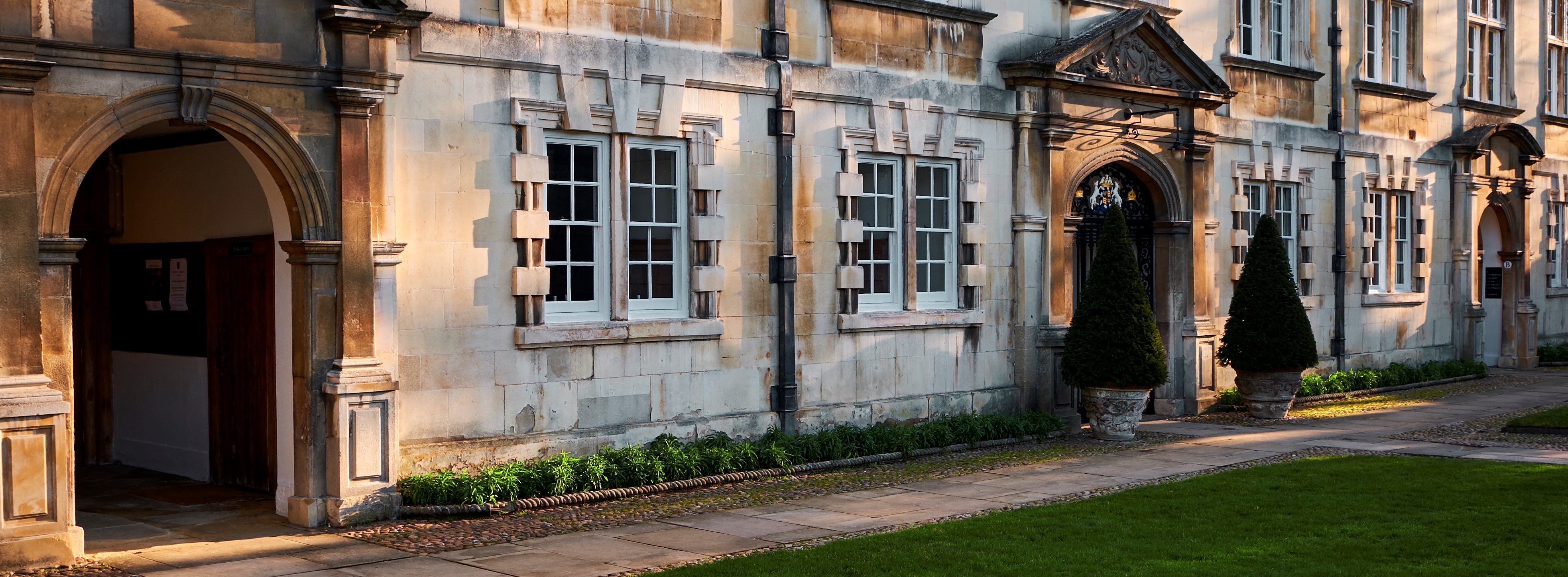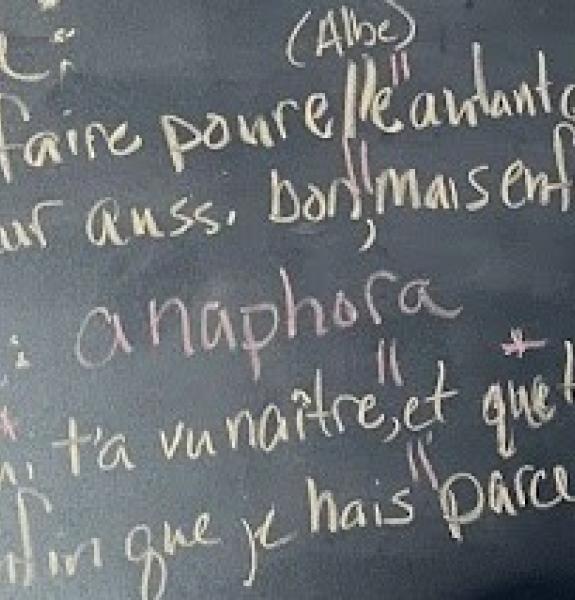Christ’s has a long and illustrious tradition in Modern and Medieval Languages. Its students and Fellows were instrume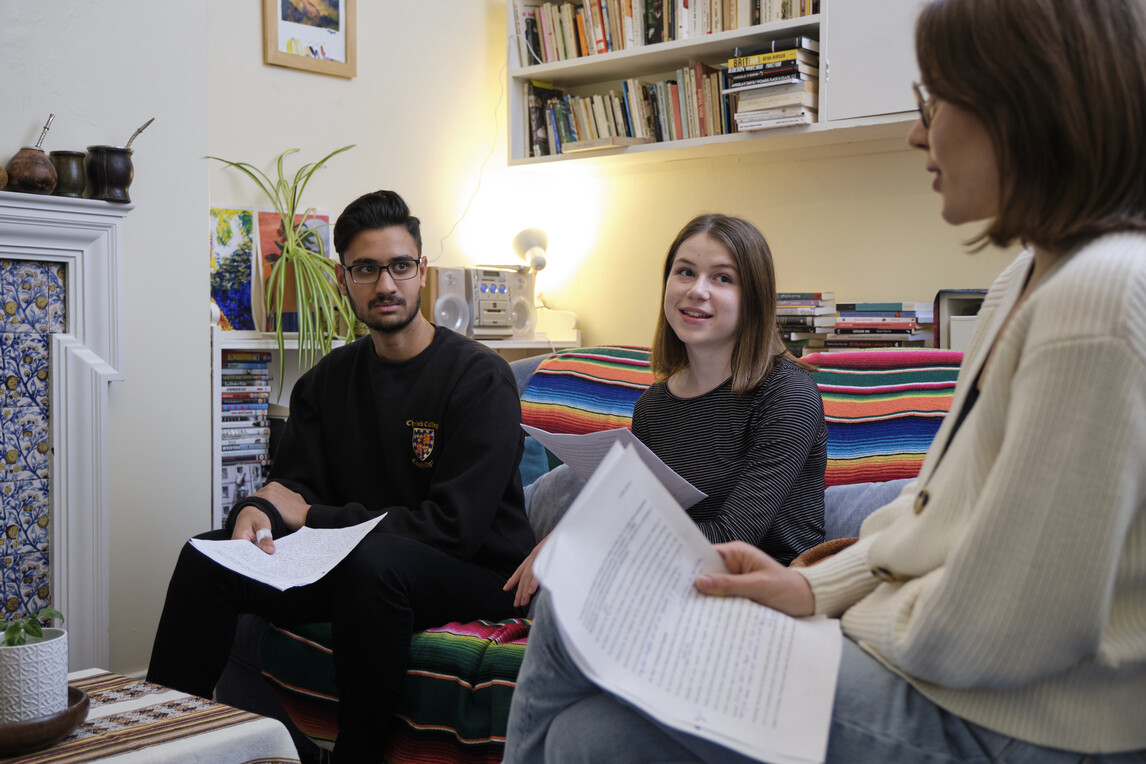 ntal in establishing Modern Languages as a subject in its own right, and the Modern Humanities Research Association, which today plays a critical role in promoting the study of European languages and literature, internationally, was founded in a room in the College shortly after World War One. A number of eminent Modern Linguists have served as Masters of Christ’s, most recently Professor Malcolm Bowie, in whose honour our MML Society is named, and we have a lively, engaged network of MML alumni using the analytical and intercultural skills that they honed on the degree course, in different ways, around the world. Christ’s has been the springboard for many successful academic careers, and our Modern and Medieval Languages graduates also work in law, finance, journalism, PR, marketing, communications, international development, school teaching, translating, interpreting and a wide range of other fields.
ntal in establishing Modern Languages as a subject in its own right, and the Modern Humanities Research Association, which today plays a critical role in promoting the study of European languages and literature, internationally, was founded in a room in the College shortly after World War One. A number of eminent Modern Linguists have served as Masters of Christ’s, most recently Professor Malcolm Bowie, in whose honour our MML Society is named, and we have a lively, engaged network of MML alumni using the analytical and intercultural skills that they honed on the degree course, in different ways, around the world. Christ’s has been the springboard for many successful academic careers, and our Modern and Medieval Languages graduates also work in law, finance, journalism, PR, marketing, communications, international development, school teaching, translating, interpreting and a wide range of other fields.
The College has no fixed quota of places in Modern Languages, and the exact number admitted each year will vary according to the strength of our applicants across MML, History and Modern Languages and Asian and Middle Eastern Studies (which allows students to combine a modern European Language with Arabic, Persian or Hebrew). Our typical annual intake, however, is around eight, and we accept students wishing to specialize in any of the languages available within the Modern and Medieval Languages “Tripos”: principally French, German, Italian, Portuguese, Russian, Spanish, Classical Latin and Classical Greek. All these languages other than French may be studied from scratch (ab initio), and we offer students the chance to take up Catalan, Dutch, Polish, Ukrainian, and Modern Greek as an additional language after the first year. Christ’s has a diverse and increasingly international student community, so whichever modern languages you choose, you are likely to find at least some native speakers with whom to practise in College, and we also assist our Modern Linguists with generous travel and book grants.
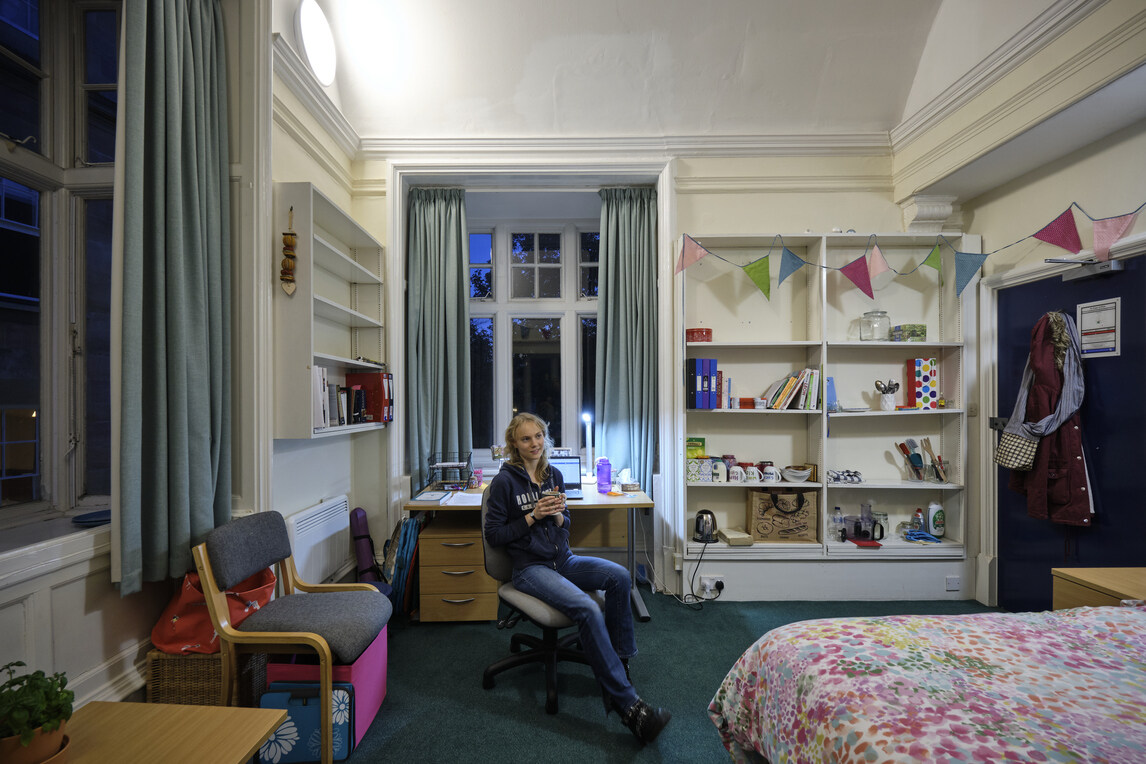
We bring our undergraduate Modern Linguists together for seminars on critical theory, exploring interdisciplinary approaches to the analysis of culture, and for “Year Abroad” talks, which have proved so inspiring that Christ’s third-year students now embark on some of the most exciting and enterprising projects in the University. Students also have the chance to exchange ideas with one another and with Fellows and postgraduates at regular social events such as drinks parties and dinners.
The Modern and Medieval Languages degree programme lasts four years, the third of which is spent abroad. Students study at least two languages for the first two years, but may choose to focus on a single language thereafter, if they wish. Each year of the degree includes both language courses and a choice of “scheduled courses” covering different aspects of culture, history, linguistics, literature, philosophy, art and film. The University’s Undergraduate Study website provides a helpful summary of the degree structure, and further information about the courses available can be found on the Faculty of Modern and Medieval Languages and Linguistics degree page. If you have further questions about course content, please contact facultyoffice@mmll.cam.ac.uk.
Giulia Boitani (Italian)
Carlos Iglesias-Crespo (Spanish)
Lucy Foster (Spanish & Portuguese)
Mary Franklin-Brown (French and Director of Studies)
Carmen Olmedilla Herrero (Spanish)
Stephanie Rohner (Spanish and Portuguese, and Director of Studies)
Felipe Schuery (Portuguese)
Emily Tomlinson (French)
Matthew Tyler (Linguistics)
Caroline Vout (Classical Latin & Classical Greek)
Robert Britten (German and Dutch)
Ksenia Zanon (Slavonic Studies and Director of Studies)
Read about the experiences of recent Modern and Medieval Languages students Yii-Ling, Sophie, Ethan, Juliette and Callum.
You may also like to read the profiles of Eebbaa and Nik, both of whom recently studied History and Modern Languages. If you’d like to hear from other Christ's students, please watch the Christ's student Q&A film, and visit our Student Profiles page.
Here is an additional overview from Juliette:

Applying to read Italian ab initio at Cambridge was a bit of a risk: not only had I never studied Italian before, but I hadn’t even been to Italy, so I didn’t really know whether the language would be for me! Thankfully, I ended up really enjoying it, partly because the first-year ab initio course (while it is quite hard work!) is very well taught, and you receive a lot of help and support from the MML teaching staff. In fact, I liked learning Italian so much that I decided to spend my whole Year Abroad in Italy. As I particularly enjoyed the literature papers that were offered by the MML Faculty in Cambridge, I’m now on an Erasmus study placement at the University of Bologna, studying Italian literature. So far, my time in Italy has been challenging but fun, and it has been really interesting to experience a totally different university system. Even though I will be taking my final-year language papers in Italian, I am still planning on taking one or two French ‘scheduled’ (optional) papers, too; the great thing about the MML degree course is that it is very flexible, so you can really tailor it to fit your specific interests.
Christ’s is a fantastic college for MML. One of the best things is the fact that, as well as having a Director of Studies (DoS) who oversees the overall progress that you are making in your degree, you also have a DoS for each of your languages, which means that you always have someone who can give you really in-depth advice about paper choices and other such things. The critical theory seminars, held throughout the year, are really helpful in bringing a fresh perspective to your academic work – they are also one of the many occasions on which Christ’s MML students get together and get to know each other!
Finally this is an old film made by the MML Faculty where students talk about the Year Abroad.
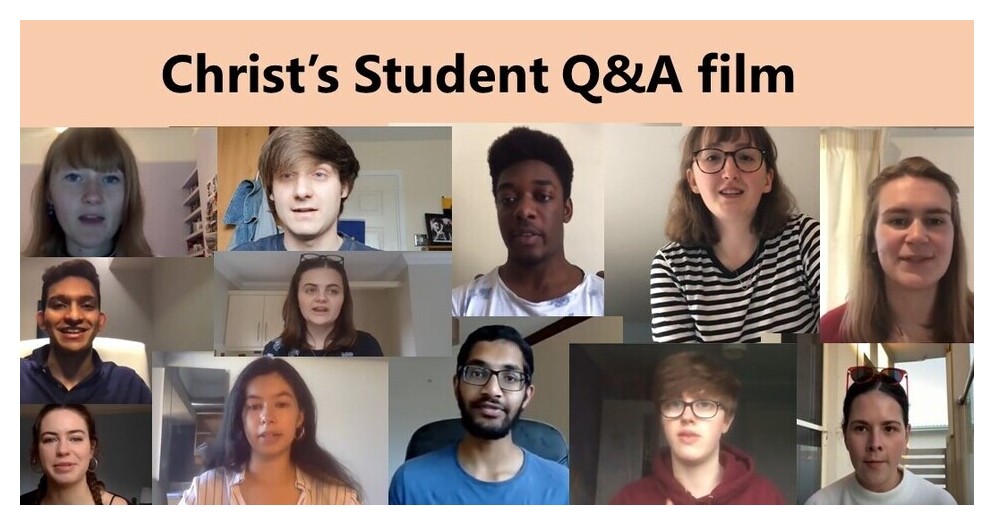
"When I leave Cambridge, I will miss being in an environment in which it is okay to be passionate about and to work hard at your subject. There aren’t many other places where that is the case."
How to apply
Visit How to Apply for full details and a timeline of the application process. We welcome applicants from all backgrounds and school types, all over the world. If you're applying from outside the UK, please also read our international students section.
If you are selected for interview, you will also take the MML Admissions Assessment remotely on a set date in late November. You do not need to register for this. Further information below.
Successful applicants for Modern and Medieval Languages come with a variety of previous educational experiences, and a variety of qualifications. You do need to have studied at least one of the two languages in which you wish to specialize to A-level or IB Higher Level standard (that is, a standard broadly equivalent to level B2 of the Council of Europe Common European Framework of Reference for Languages). You also need to be academically ambitious: our standard offer for A-level candidates is A*AA, and for IB candidates 42 points overall, with 776 at Higher Level, but the majority of Christ’s students arrive with higher grades, and if you are studying within another system we would expect you to be working at or close to the top of the mark range. (Thus, an Baccalauréat français international (BFI) candidate should be aiming for 17 (mention très bien) out of 20 overall, with a minimum of 17 in their languages, including English, a European Baccalaureate candidate for at least 85% overall, with 9/10 in their languages.)
You do not need to have studied literature, thought or history in any formal way before. Many MML students at Christ’s do have an A-level or comparable qualification in History, English Literature or the literature of another European country. However, we regularly accept students who have taken one or more languages alongside Mathematics and other Sciences. The structure of our degree course allows undergraduates to sample a variety of disciplines, and it is possible to maintain a broad portfolio of interests throughout the four years, but almost all students eventually chart a pathway based either on cognate cultures and literatures, or on the structure, history and properties of language (read about Linguistics within the Modern and Medieval Languages Tripos). A background in Mathematics can be particularly helpful for the second of these pathways. What is most important, though, is that you are enthusiastic about language-learning, intellectually enquiring, and curious about cultural difference. It is also essential that you enjoy reading, because an interest in words and how people use them is the backbone of the course as a whole.
If you would like to find out more about common subjects taken by prospective MML students, please see the entry requirements tab in the undergraduate MML course information. We encourage students to attend one of our regular Subject Matters webinars for help with choosing Post-16 subjects for competitive university applications. This webinar is pitched for students aged 14-16 though it is also possible to attend when you have started sixth form.
We encourage prospective applicants for Modern and Medieval Languages to read widely, both in any language you have already studied, and around that language, and any language that you wish to study ab initio. Your reading does not have to be academic, but it is important to engage actively and critically with the culture of the countries where your chosen languages are spoken, whether by reading novels, poetry or drama (in the original or in translation), learning about the history of those countries, or keeping up with current affairs (a comprehensive directory of European newspapers is available at Online Newspapers). You should not neglect audio-visual materials, either: many students come to us inspired by films they have watched in relevant languages, and radio and television are a good way to maintain a level of immersion, though you should always try to reflect on what you have heard and seen (a comprehensive directory of European radio stations is available at ListenLive). Guided activities in the analysis of literature and culture, together with many other resources, can be found on the HE+ Modern Languages website, and CamGuides are also helpful.
It can also be good preparation for a degree course in MML to think more generally about how languages are structured, and how they evolve and differ from one another, as well as what they have in common. If this aspect of the subject especially interests you, there are some ideas for further reading on our Linguistics page, the University’s Linguistics Department participates in the Modern and Medieval Languages Faculty Open Day in March and there's a Cambridge German conference too. Other subject-specific events you might wish to consider include Masterclasses and taster days, and if you are a UK student from a background where there is little tradition of entry to Higher Education, you can apply to attend a Sutton Trust Summer School in Modern Languages or to shadow a current MML undergraduate via the Cambridge SU Shadowing Scheme.
After you apply through UCAS, we will ask you to upload two essays you have recently completed, either as part of your school curriculum, or independently, providing you with guidance on appropriate length and format. Full written work guidelines will be provided as part of the current applicants section on this website (published on 20 September each year) and the written work upload deadline will be in early November.
If we select you for interviews, these take place in early December. There is no set quota but we usually interview at least 80% of our applicants and you are normally interviewed for between 35 and 50 minutes in total. At Christ’s, we split the time into two interviews with academics in Modern and Medieval Languages, one for each of the languages you plan to study. We do all of our interviews online on Microsoft Teams. You can have your interviews either at home (most applicants do this) or at school (if easier).
Shortly before each interview, you will be sent a short text to read, for discussion during the interview. An interview for a language you have already studied will include a text in that language (and perhaps some questions to think about as you read it); interviewers for a language you wish to learn from scratch will set a text in English, but will be seeking to gauge the level of your commitment to that language, as well as general linguistic and analytical aptitude.
Further, more general information about interviews (including two useful films) is available in the Cambridge interviews section, and it's worth also having a look at supervisions (short film here), as interviews are similar to what you do every week as a Cambridge student.
Assessment details are confirmed by July each year, but note that applicants for MML who are selected for interview are normally asked to take the MML Admissions Assessment towards the end of November (Wednesday 19 November 2025 for this year's applicants). We arrange your assessment automatically if you are selected for interview, so you don't need to register. You complete the assessment remotely (you can complete it at home or at school) and upload your work - you will not need to travel for it. Details of how the assessment will work are given to students selected for interview by email.
Information about the format and content of the MML Admissions Assessment is available on the College assessments page by July each year. There are sometimes changes to assessments from year to year - any changes are confirmed by the July before you apply.
If you are invited for interview and are applying for Classical Latin or Classical Greek as one of your languages, you'll have both the MML (written) Assessment and also the Classics Assessment. Please see the Classics page for further information.
We define the terms of each offer individually but our typical conditional offer for MML is:
> A*AA at A-level
> 42 points overall in the International Baccalaureate with 7,7,6 in relevant Higher Level subjects
> A1, A2, A2 in three Scottish Advanced Highers.
We may tie the A* to a relevant subject (depending on what combination of subjects you are taking) or ask you to complete some additional self-study if you are not taking a close equivalent of A-level in either language.
You need to be academically ambitious: the majority of Christ's students arrive with higher grades than are required.
If you’re taking another qualification, we expect you to be working at or close to the top of the mark range i.e.
> Baccalauréat français international (BFI): 17 (mention très bien) out of 20 overall, with a minimum of 17 in relevant subjects
> European Baccalaureate: at least 85% overall, with 9/10 in relevant subjects
You can look up other qualifications in the offer levels for other exam systems and international entry requirements, and if you are applying from outside the UK please read the Christ's international students section for further information and check the country pages.
If you will have finished school when you apply, please also read about post-qualification applications, taking a gap year, and, if relevant, applying from a university.
Would you like to receive these resources in an email? Please complete this brief form.
> MML Open Day Resources from previous virtual open days
> Cambridge Collaborative A level Resources - see playlist, Intro in French and Intro in German
> The Cambridge Language Collective - A student-run space for exploration beyond the curriculum.
> Online Newspapers in various languages
> ListenLive (radio) - directory of European Radio stations
> Languages change Lives - MEITS booklet (interdisciplinary research project)
> Cambridge Language Centre Open Courseware for French, German, Italian, Russian, Spanish
> HE+ Modern and Medieval Languages - website for secondary school students
> Duolingo language learning platform
Reading
Parallel texts can be very helpful. There's a Penguin Parallel Texts series, available in German, French, Spanish, Russian, and Italian. A collection of short stories by various authors, with English translations. See the Waterstones website (between £8.99-£15.99), and check AbeBooks for cheaper second-hand copies.
The MML Faculty provides summer preparation info for offer holders. Set texts may change from year to year. Lists are updated by August.
French post A-level (or equivalent) / (there's no French from scratch)
German post A-level (or equivalent) / German from scratch
Italian post A-level (or equivalent) / Italian from scratch
Portuguese post A level (or equivalent) / Portuguese from scratch
Russian post A level (or equivalent) / Russian from scratch
Spanish post A-level (or equivalent) / Spanish from scratch
Students applying for Classical Latin or Classical Greek receive preparation information in August before starting the course.
Language websites
More generally, see CamGuides for an introduction to the academic and information skills that you will need during your studies, as well as how and where you would be working.
Be aware of the breadth of the course you're applying for: have a look at some texts from various time periods, look at film as well as literature. As well as helping with your application, this will also prepare you well for the course.
Events (online / in-person)
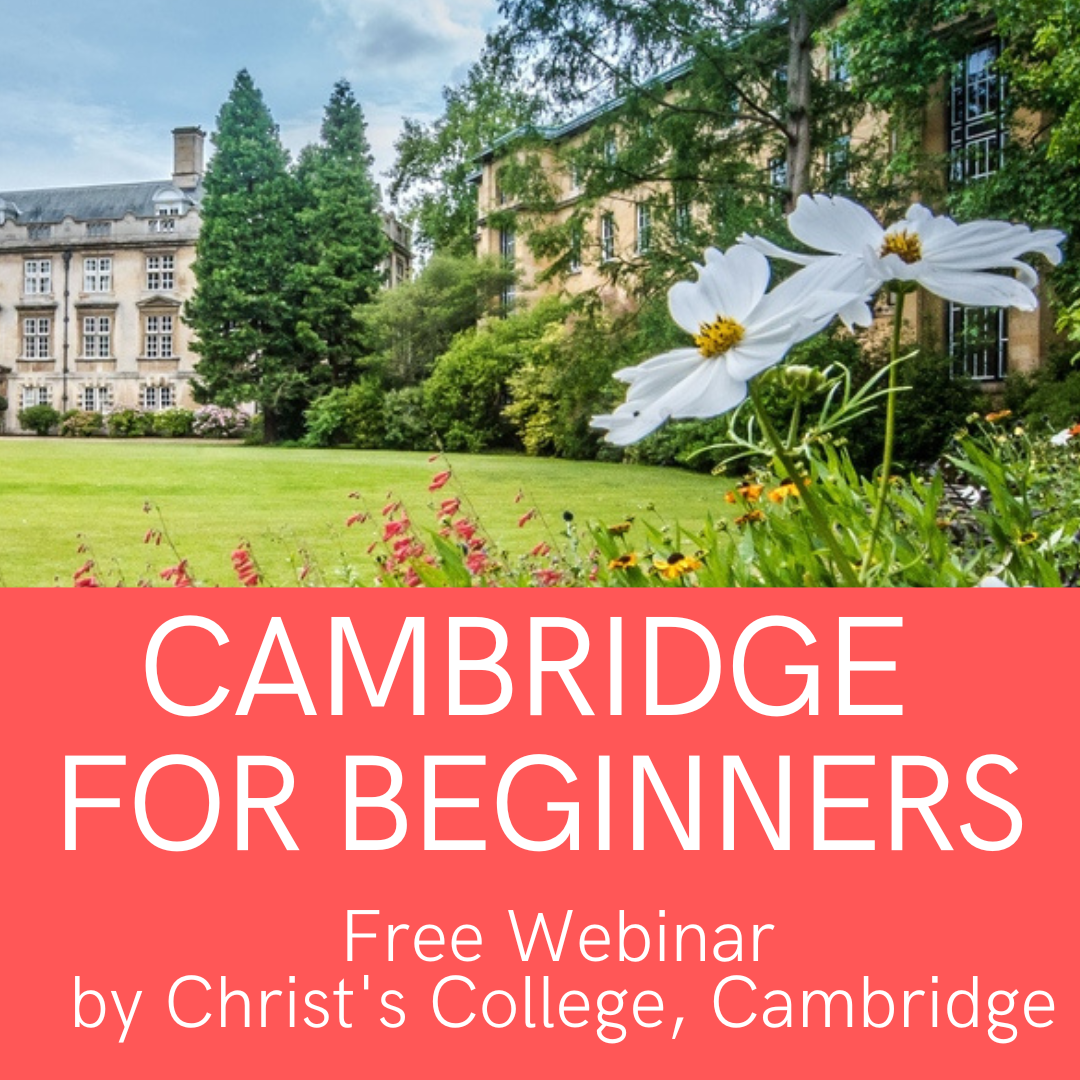
Our open days and events page advertises regular online opportunities as well as events you can attend in Cambridge. Between February and August we run regular webinars:
> Subject Matters: The importance of post-16 subject choices
> Cambridge for Beginners
> Understanding Student Finance
> Personal Statements and preparing for an application
> Webinars for applicants outside the UK
For MML, see in particular
> College Open Days
> World of Words residential in March/April (eligibility criteria apply)
> MML Faculty Open Day in March (feel free to Visit Christ's the same day)
> Christ's Online Subject Meetings in May
> Christ's MML 1:1 zoom meetings in June/early July
> Cambridge SU Shadowing Scheme (eligibility criteria apply)
> Sutton Trust Summer School (eligibility criteria apply)
If you are able to come to a College Open Day, we will be glad to tell you more about the College and the Modern and Medieval Languages course in person. If you are not able to come to an Open Day, we will be happy to answer any queries you may have by e-mail (admissions@christs.cam.ac.uk).

